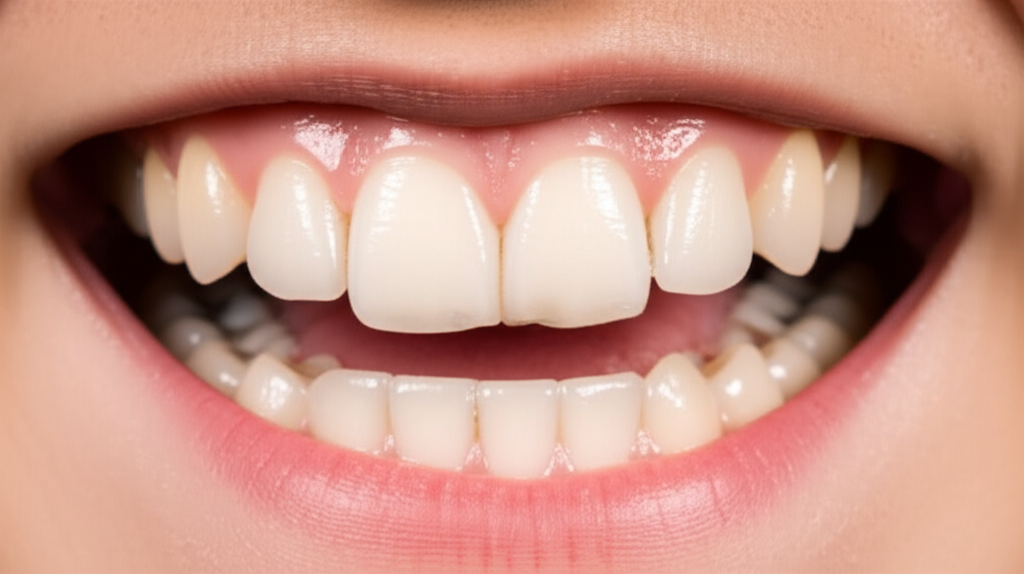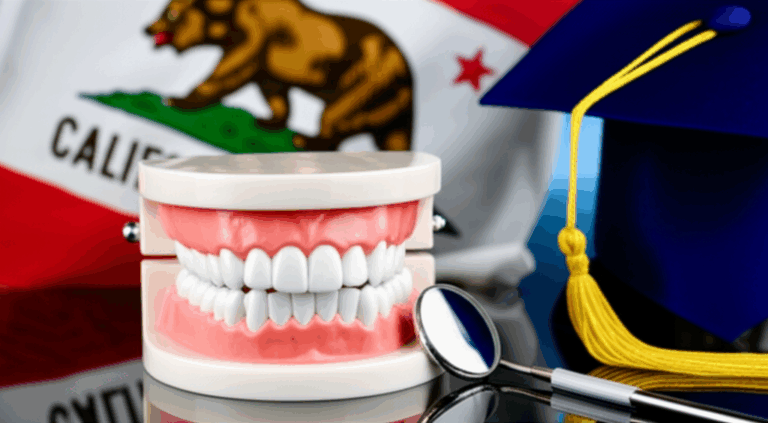
Can You Get Veneers with an Overbite? Your Complete Guide to a Straighter, Stunning Smile
That feeling when you look in the mirror and wish your overbite—or the way your top teeth overlap the bottom—could just vanish. Maybe you’ve been dreaming of that perfect, straight Hollywood smile, and you’ve heard veneers are the shortcut. But now you’re wondering, “Can I get veneers if I have an overbite?” Is it possible, or am I setting myself up for disappointment?
If these questions have been bouncing around your head, you’re in the right place. You’re definitely not alone. Overbites are one of the most common bite concerns out there, and dental veneers are one of today’s most wanted cosmetic fixes. But figuring out if these two things can go together safely—and work—takes some honest, clear info.
I’m here to explain it all for you. We’ll look at what an overbite really is, how veneers work, where they’re good, and when they are not. By the end, you’ll know your choices, and you’ll feel ready to take the next step toward the smile you want.
In This Article
- What’s an Overbite? (And Why Does It Matter for Veneers?)
- Understanding Veneers: More Than a Surface Solution
- Can Veneers Fix an Overbite? (And When Shouldn’t They?)
- How Veneers Can Help Minor Overbites (But Not Major Ones)
- Risks and Realities: What to Watch Out For
- Alternatives to Veneers for Overbite Correction
- Deciding What’s Best: The Dental Consultation Process
- Quick Answers: The Most Common Questions About Veneers & Overbites
- Key Takeaways – Your Smile, Your Choice
What’s an Overbite? (And Why Does It Matter for Veneers?)
Before getting into veneers, let’s start with the basics—what is an overbite? And why does it matter for getting the smile you want?
Think of your teeth like puzzle pieces: The top teeth and bottom teeth are supposed to fit together just right. An overbite means the top front teeth go too far over your bottom teeth. A normal overbite is around 2-4mm (just a little overlap); most people have some. But if the overlap is big or causes problems, it’s called a bad bite.
The Types of Overbites
Your dentist might say you have:
- Mild: Just a little overlap, mostly a look problem.
- Moderate: Noticeable, can affect how you look and sometimes how you use your teeth.
- Deep or Severe: The top teeth almost hide the bottom teeth when you bite down. This can cause problems with eating, talking, or even jaw pain or headaches.
- Dental vs. Skeletal: Some overbites happen because teeth come in unevenly (dental overbite). Others happen because of jawbone differences (skeletal overbite). The type changes what treatment works best.
Why Does Overbite Matter for Veneers?
Veneers aren’t just for looks—they need your teeth to be sitting just about right. If your bite is really off, your nice new covers might not last, or could even make things worse for your real teeth.
Understanding Veneers: More Than a Surface Solution
Let’s talk veneers—what are they, really?
A dental veneer is a thin, special “cover” that goes on the front of your tooth. Most are made out of either porcelain or composite resin. Their job is to make teeth look perfect—great shape, color, and length—in a way that feels strong and looks real.
These days, veneers are a big celebrity secret: a quick way to a bright, even smile. But there’s more to veneers than just the look.
The Different Types
- Porcelain Veneers: Tough, don’t stain easy, look most like real teeth. Last 10-15 years (or more with good care). Often made by a dental ceramics lab for the best look.
- Composite Veneers: Made from tooth-colored filling stuff. Usually cheaper, might last 5-7 years, and easier to fix if chipped. Not quite as lifelike as porcelain but still look much better than before.
Both types fix up chipped, stained, gapped, or a little bit crooked teeth fast and with very little pain. But there’s a limit to what they can do—especially with bites that need real fixing.
Can Veneers Fix an Overbite? (And When Shouldn’t They?)
Here’s the big question: “Can I get veneers if I have an overbite?” The real answer is—it depends.
When Veneers Can Help
Mild to moderate, mainly look-problem overbites: That’s where veneers help most. If your overbite just makes you wish your teeth looked better, and doesn’t really affect eating, veneers could be an answer. Think of veneers as a cover-up: they hide small problems, making teeth look straighter and cleaner.
- Slight Overlap? Your overbite is there, but your teeth are healthy and not too out of place—just not movie-star straight. Veneers can make your smile brighter and hide some of that overlap.
But—big warning—veneers do NOT move your teeth. They only cover what’s already there. If your overbite is big, or your teeth are crowded, twisted, or a little loose, veneers just won’t work well.
When Veneers Are NOT a Good Idea
- Deep or Severe Overbites: If your upper teeth bite down too far in front of the lowers—especially if you have a “deep bite” or trouble eating, or jaw pain—veneers aren’t for you. Putting veneers on teeth like this can break them fast, or even hurt your own teeth.
- Skeletal Overbites: If your jaw shape is the problem, you need more than a cover-up. Veneers can’t fix jaw bones.
- Lots of Crooked or Spaced Teeth: If your teeth are too twisted or far apart, veneers can’t stick strong, and likely won’t last.
- Teeth Worn Down: Veneers need strong, healthy teeth underneath. If your overbite has made your teeth short or weak, there might not be enough to hold a veneer on.
The Main Point
Veneers are a “looks helper” for your smile, not a real fixer of how your teeth line up. If your overbite is small and you just want things tidier, veneers could work. If your overbite is medium or big, talk with your dentist about other fixes first.
How Veneers Can Help Minor Overbites (But Not Major Ones)
If you have just a small overbite and you wonder how veneers could help:
What Veneers Can Do
- Change the Shape & Length of Teeth: A good dentist can make the upper teeth look a little shorter or the lowers longer, making the overbite look smaller.
- Make Teeth Appear Straighter: If a tooth is set back or twisted, a veneer can make it look like the out-of-line tooth is straight.
- Fill Minor Gaps & Hide Small Crookedness: Veneers can close little spaces and straighten up the look.
- Make Teeth Look New: Chips, stains, or worn-out spots vanish. Your teeth look clean and young again.
What Veneers Can’t Do
- Move Teeth: Veneers don’t shift or turn teeth; they only cover them up.
- Fix Bite Problems: If your overbite makes it hard to chew or your jaw hurts, veneers won’t help. In fact, biting hard might break off a veneer.
Think of veneers like makeup for your teeth. They give a nice finish, but if the teeth underneath are not okay, the result won’t last.
Risks and Realities: What to Watch Out For
Veneers look great in “before and after” pictures, but they aren’t magic. Here’s what to think about if you have an overbite.
1. More Stress on Veneers
A big overbite can push extra hard on the veneers when you chew, talk, or clench your teeth (called grinding). This can make a veneer chip, crack, or pop off—sometimes in just months or a few years.
2. Faster Wear
It’s not just the veneer that wears down. Your real, opposing teeth can get ground down more by a new, thicker, or longer tooth surface.
3. Chew Problems
If your dentist tries to use veneers to “fake” a fixed bite, it can mess up your natural chewing, making your jaw sore or making talking harder.
4. Gum and Tooth Issues
A bad bite can make it tough to keep gums clean. Sometimes, veneers in these spots trap food and make cleaning harder—so gum disease risk goes up. Plus, dentists have to shave some enamel off for veneers—if your teeth are already short, that could do real harm.
5. Shorter Life of Veneers
Veneers usually last 10-15 years, but on teeth with a big untreated overbite? They often last much less time.
The Bottom Line?
Veneers and overbites only mix safely when it’s a small problem and your dentist is careful. Otherwise, you might end up with more problems than before.
Alternatives to Veneers for Overbite Correction
If veneers aren’t good or safe for you because of your bite, don’t worry—there are other ways to get a straighter, better working smile.
1. Braces or Clear Aligners: The Gold Standard
Want to fix the real reason for the overbite? Braces or clear aligners do that.
- Braces (Metal or Clear): Great for fixing medium to big overbites, including ones caused by jaw shape.
- Invisalign or Clear Aligners: Good for adults with small to medium overbites who don’t want metal on their teeth. They’re see-through and removable. Sometimes, you can get veneers after straightening, for perfect color and shape.
- Benefits: Both make your teeth look and work better—chewing is easier, jaw pain can lessen, and you can even add veneers later if you want.
2. Dental Bonding
Bonding uses tooth-colored material to cover up tiny gaps, chips, or problems. It’s fast and cheap compared to veneers, but only hides small things.
3. Dental Crowns
If your teeth are too worn out for veneers, or you need extra strength, crowns can fully cover the tooth. They don’t move teeth around, but make them work and look better. Crowns are sometimes made by a crown and bridge lab.
4. Jaw Surgery
If a really bad overbite comes from your jaw, surgery may be needed, usually with orthodontics. This is a serious choice. But sometimes, it’s the only way to fix a bad jaw overbite.
5. Fix Bite First, Get Veneers Later
For lots of adults: use orthodontics to line up your bite first, then do veneers for the final polish. This way, you get both health and beauty—without risky veneer troubles.
Deciding What’s Best: The Dental Consultation Process
There’s no online test or self-check in the mirror that can replace a full dental check when it comes to overbites and veneers. Here’s what happens and what to ask your dentist.
What Happens at the Dentist?
Good Questions to Ask
- Is my overbite small, medium, or big?
- Will veneers only change how my teeth look, or will they also help me chew?
- Do veneers or teeth have a risk of breaking because of my bite?
- Are there longer-lasting or healthier options for my mouth?
- If I get veneers, how often will they need to be redone?
- Does my insurance help pay for any of the treatments?
Choosing the Right Dentist
Find a dentist who works a lot with cosmetic dentistry and fixes bites, or ask for a consult with an orthodontist or prosthodontist (they rebuild bites and smiles for lasting results).
Quick Answers: The Most Common Questions About Veneers & Overbites
Q: Will veneers make my overbite look better?
A: For small overlaps, yes! They can make teeth seem straighter and neater. But for medium or big overbites, veneers won’t fix the real problem.
Q: How long do veneers last with an overbite?
A: Veneers last 10-15 years with a nice bite. With a big overbite, they might break or wear out much sooner.
Q: Can veneers make my overbite worse?
A: If not planned well, they could mess up your bite or chew even more. Always see a good dentist before going ahead.
Q: Will insurance cover this?
A: Insurance almost never pays for cosmetic veneers, but may help pay for braces or surgery if your overbite causes health trouble. Always check your plan.
Key Takeaways – Your Smile, Your Choice
Here’s the main stuff to remember:
- Veneers can hide a small, mostly look-problem overbite—making teeth look straighter and brighter.
- For bigger overbites, and if you have problems using your teeth, veneers alone won’t fix things. Look at braces or a mix of fixes.
- Any overbite with veneers needs a dentist check-up. Don’t skip it! The dentist will look at your bite, tooth strength, and gums before suggesting anything.
- Risks include—breaking veneers, wearing out teeth, bite problems, and gum trouble—if you put veneers on a bad bite.
- Other choices: braces, clear aligners, crowns, bonding, or even surgery for really bad jaw bites.
- Ask lots of questions, get two opinions if you want, and choose health over quick results.
Want to get started? The first step to your new smile is a check-up with a dentist who knows both how to make teeth look good and how to line them up right. Whether you pick veneers, braces, or both, the best plan starts with personal advice just for you.
Looking for a great dental lab for veneers or crowns? Want the latest in dental ceramics or digital design? You can check out a digital dental lab, veneer lab, or crown and bridge lab that works with skilled dentists.
Final Thoughts
Life’s too short to hide your smile. But your teeth’s health—how you eat, talk, live—is more important than a quick beauty fix. Ask questions and work with a dentist who cares about your health, not just looks. You’re not just another patient—you deserve to feel happy, proud, and comfortable every time you smile.
Have more questions about veneers, overbites, or your teeth? Talk to a dentist you trust today. Even one good chat could change your smile—and your confidence—for good.








